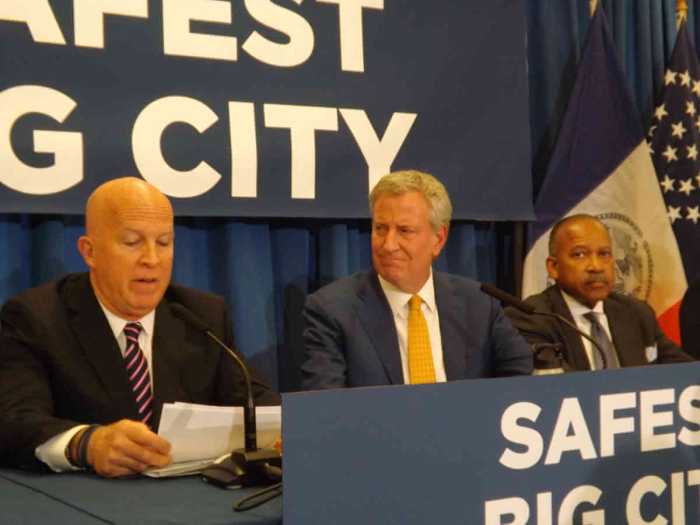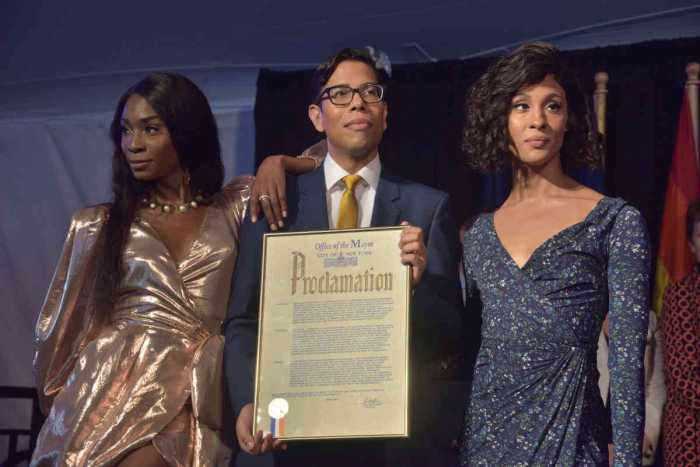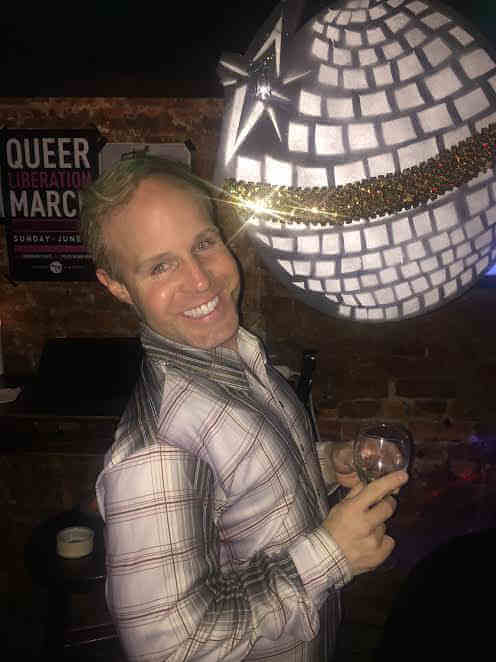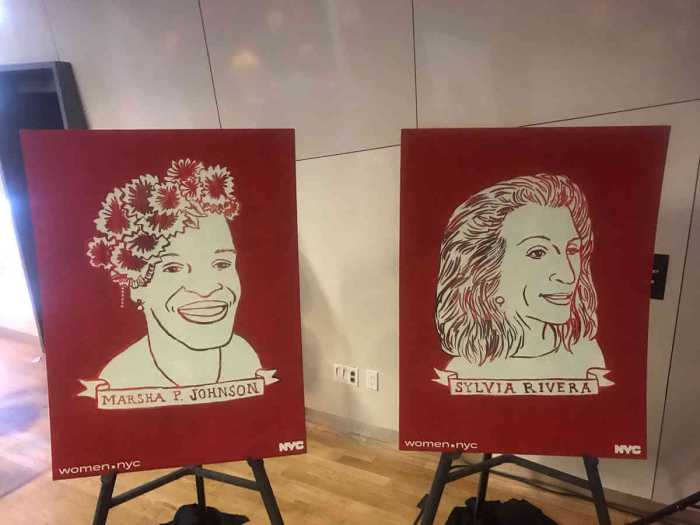Audience feedback at the LGBT Talking Transition event. | DONNA ACETO
At the start of a town hall meeting held in the Talking Transition tent at Sixth Avenue and Canal Street, Glennda Testone told the roughly 50 people who turned out why they were gathered there.
“Our goal tonight is to start a conversation about the serious issues that face the LGBT community,” the executive director of the Lesbian, Gay, Bisexual & Transgender Community Center said at the November 22 event.
It has been 20 years since a Democrat ran City Hall. Bill de Blasio, who will be sworn in on January 1, is not just a Democrat. He campaigned as the “unapologetic progressive alternative” not just to two successive Republican mayors — though Michael Bloomberg eventually shed that party label — but also to his fellow Democrats.
At town hall meeting of LGBT, AIDS groups, focus is on need, but budget shortfalls loom
“The people of this city have chosen a progressive path and tonight we go forward on it as one city,” de Blasio told a crowd of roughly 1,000 supporters who gathered in the Park Slope Armory on November 5 after he easily won the general election.
In anticipation of a mayoralty that will perhaps be more receptive to the lobbying of queer and AIDS groups, 11 such groups organized the meeting. With an unwieldy 11 panelists, the 90-minute event was less of a conversation and more of a lecture as each panelist mostly detailed the ills — though they did articulate a few goals — that New York City queers continue to be burdened with.
The LGBT Community Center's Glennda Testone. | DONNA ACETO
Ten foundations spent a few million dollars to build the Talking Transition tent. Some of the walls and furniture were assembled from milk cartons that were meant to resemble soapboxes. Talking Transition required that every event have some interactive component. Community groups were invited to stage their meetings in the tent over two weeks starting on November 9. The tent drew visits from de Blasio, his wife Chirlane McCray, and members of his transition team.
The first 20 to 25 minutes of the November 22 event were taken up with introductions of the panelists and presentations of the problems they or their clients confront.
To satisfy the interactive requirement, Testone next read 20 statements about the community’s problems. The statements were also displayed on a large screen above the panelists’ heads. The audience was invited to hold up signs that read “True” on one side and “False” on the other. A panelist was then asked to say if the audience got it right and to comment on the statement. There was time toward the end of the event for a half-dozen questions from audience members.
What went largely unmentioned during the 90 minutes was the city’s budget, which will continue to see annual deficits for the foreseeable future. Mayor de Blasio will also have to negotiate new contracts with all of the city’s unions and that could require billions to pay for new labor, health, and pension contribution costs. The Bloomberg administration has balanced its recent budgets in large measure by not negotiating new contracts for the past four years.
While all of the panelists certainly understood that relieving the problems they described requires money, few spoke to that issue. New York City, with its roughly $72 billion annual budget, is a major funder for their groups. When discussing the need to build housing for queer elders, Michael Adams noted that the city is not currently backing this.
SAGE's Michael Adams. | DONNA ACETO
“This is something the city should be funding and supporting,” said the executive director of Services and Advocacy for GLBT Elders (SAGE) during the meeting.
A November 15 meeting titled “Ending AIDS in New York City” had a similar tone. The attendees produced long lists of demands, but did not grapple with how to fund those demands other than backing a “Robin Hood tax” on financial transactions on Wall Street.
“No one in my line of work is so foolish as to imagine that everything we want is going to happen,” Daniel Tietz, executive director of ACRIA, an AIDS research and education group, and a longtime Democratic Party activist, told Gay City News. “I do think it’s an opportunity to rethink the policy choices and how we spend the money and to reprogram the resources to reflect the genuine needs of the city.”
Some of the groups and the Talking Transition backers will produce reports on the proceedings that will be delivered to the de Blasio transition team.
“I have to think that this is, if you will, the progressive wish list,” Tietz said. “That’s probably what mostly happened in that tent… That’s probably a shared agenda with the mayor-elect and a more progressive City Council. I do think it’s a great place to start a conversation.”





































